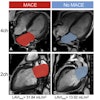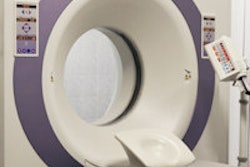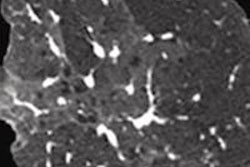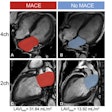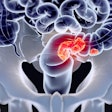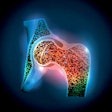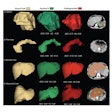Wednesday, December 3 | 11:50 a.m.-12:00 p.m. | SSK03-09 | Room S502AB
Dr. Martin Willemink and colleagues from University Medical Center Utrecht in the Netherlands addressed this question with iterative model reconstruction, a calcium hydroxyapatite-containing phantom, and a 256-slice CT scanner.Iterative reconstruction allows for dose reduction without compromising image quality in coronary calcium scoring studies using CT. But recent studies have found that iterative reconstruction reduced coronary calcium scores compared to filtered back projection. Motion is another wild card that can over- or underestimate calcium burden. How do iterative reconstruction and motion together affect calcium scores?
"This study aims to evaluate whether iterative reconstruction can counterbalance the influence of dose reduction on [coronary calcium scoring] of moving calcifications with known mass in coronary CT on new generation CT scanners from four different vendors," Willemink wrote in an email to AuntMinnie.com.
In the study, which used state-of-the-art CT scanners from five vendors, iterative reconstruction reduced calcium scores by as much as 6%; however, motion artifacts increased the scores by as much as 94%. What happens when you put them together?
"Dose reduction in coronary calcium CT results in increased [coronary calcium scoring], whereas iterative reconstruction can alleviate these increased scores," Willemink wrote.
And all this accuracy was seen with multiple vendors, while cutting radiation dose nearly in half.
